Make sure you never miss an update. subscribe to the progress update newsletter
In this issue:
Features
Fish Forever Program Round-Up
Field-building Research
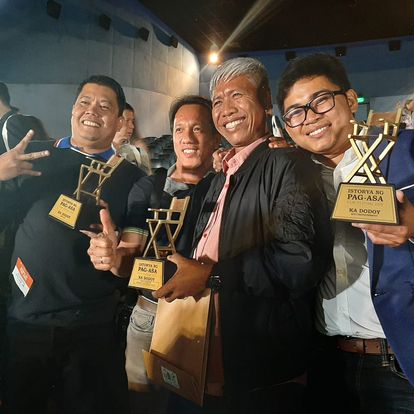 |
IYAFA 2022 Feature: Roberto ‘Ka Dodoy’ BallonIn 2022, Rare celebrates and supports the United Nations’ International Year of Artisanal Fisheries and Aquaculture. During this important year, we feature the countless contributions of artisanal and small-scale fishing community members, like award-winning Filipino fisherfolk leader Roberto Ballon. They are creating the foundation for community-led coastal fisheries management around the world. |
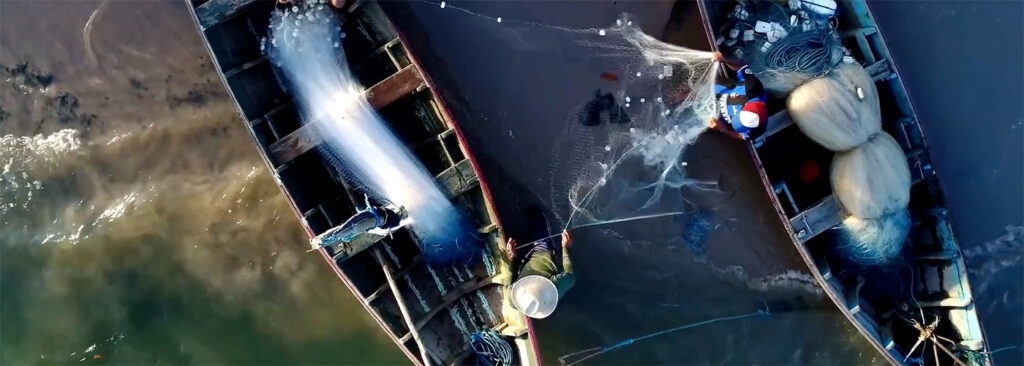
|
Fish Forever: Then & NowSince its launch, Fish Forever has tested and refined its approach with over 1,000 communities across eight countries, putting into place improved protection and management of 5.5 million hectares of territorial waters. This program retrospective is a timely snapshot of Fish Forever’s remarkable global progress and growth since its first phase. |
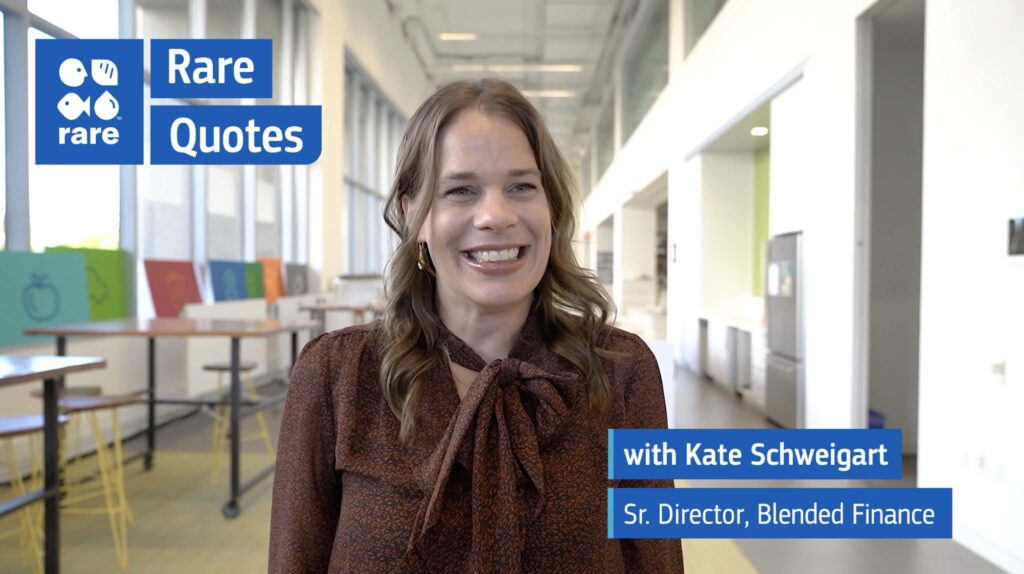
|
Rare Quotes with Kate Schweigart, Senior Director of Innovative FinanceOceans contribute nearly $1.5 trillion to the global economy and employ close to 60 million people. But coastal communities don’t capture or retain much wealth because they are left out of the formal economy. In our newest Rare Quotes, Kate Schweigart shares how Rare is tackling this problem. |
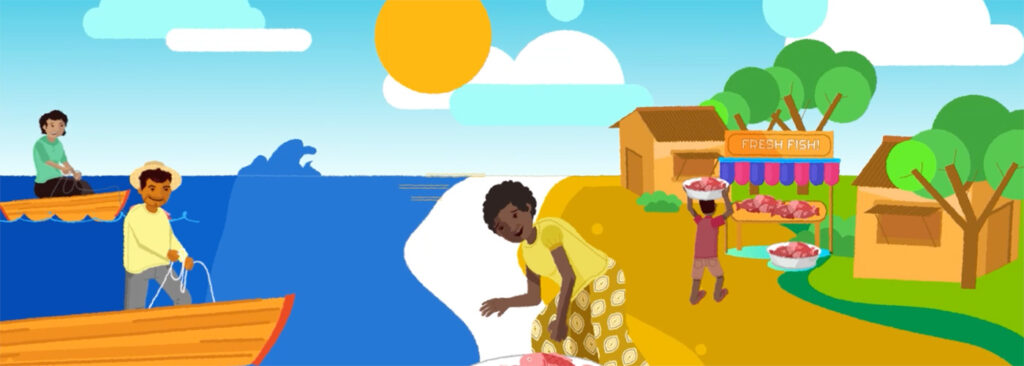 |
Managed Access with Reserves: An ExplainerTerritorial sea conservation requires a comprehensive transition: from “open access” to “managed access,” from “little to no protection” to “networks of small, protected areas,” and from “no enforcement” to “locally-driven stewardship.” Our latest explainer video breaks down our “managed access with reserves” approach into a digestible, informative, and visual experience. |
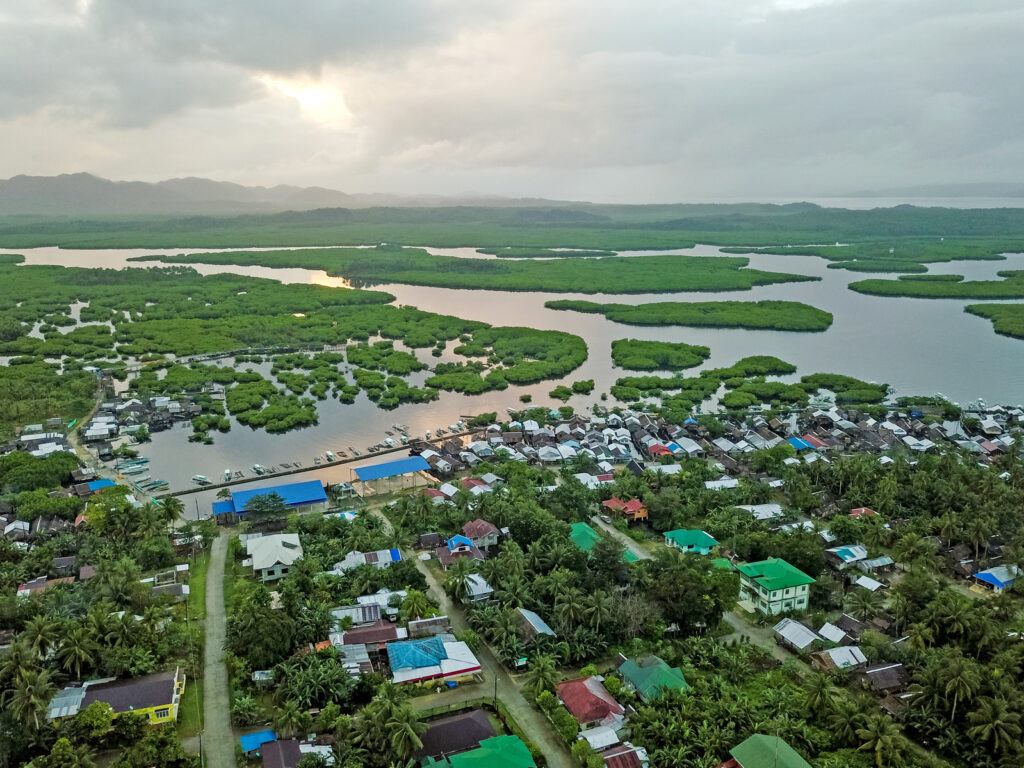 |
Program Round-upFrom developing tools and trainings to facilitating new regulations, businesses, management committees, bank agents, climate initiatives, fisheries data, and local government investments and commitments, Fish Forever has been busy laying the groundwork to advance community-led management across eight countries. |
Fish Forever Round-up
The Fish Forever Data Portal
*Real-time program data. For more details, see https://portal.rare.org.
Global
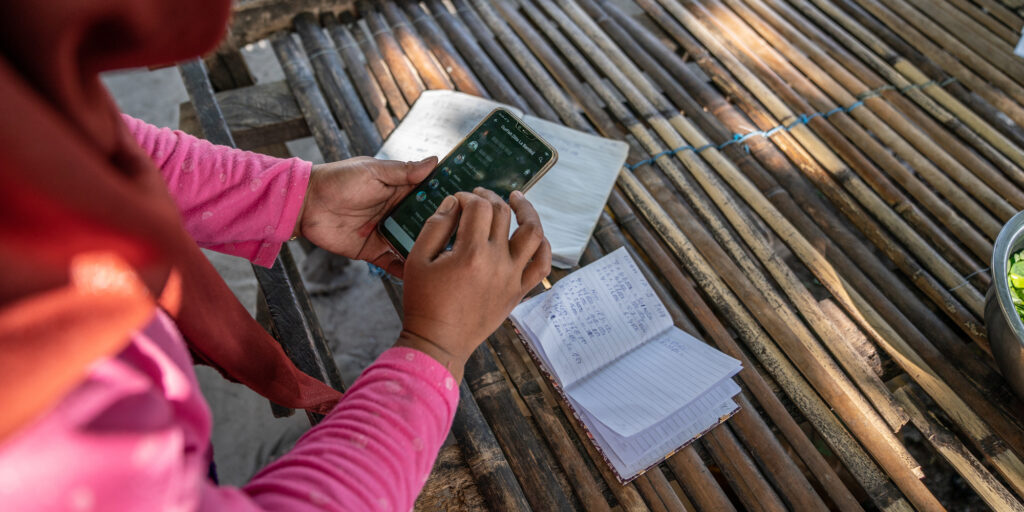
New Fish Forever Hub Resources: Grounded in insights collected by and analyzed with country teams, the Global ‘Hub’ for Collaboration & Learning recently led the production of three resources to influence the consistent and correct use of our digital catch recording app, OurFish: a User Manual for community ambassadors to provide buyers regular, personalized and frequent in-person support; a Community Event Plan that centers the family and the app’s benefits to household well-being; and a behavior adoption Journey Map that connects insights to behavior interventions milestones and guides implementation work plans.
First Training of the Network of Marine Reserves (NMR) Tool: Rare’s Science and Technology Team has conducted the first training of the NMR planning tool with the Mozambique country team. The tool allows users to visualize a region’s available spatial data and interactively choose a network of marine reserves that meets program targets. The tool’s next version will include user enhancements and feedback and be used to train Rare’s on-the-ground implementing partners.
OurFish App Update: The newest version of the catch recording app OurFish is now available to download on the Google Play Store. Rare is also in the process of developing online financial statements for buyers, based on transaction data collected with OurFish, that will be available via a secure, browser-based system using a buyer’s OurFish login credentials. Rare will conduct a pilot of the new system and a training session of the latest app version soon with our partners to continue improving how the app presents financial information. Rare is also considering the potential to create a similar app and system for fishers.
Mozambique
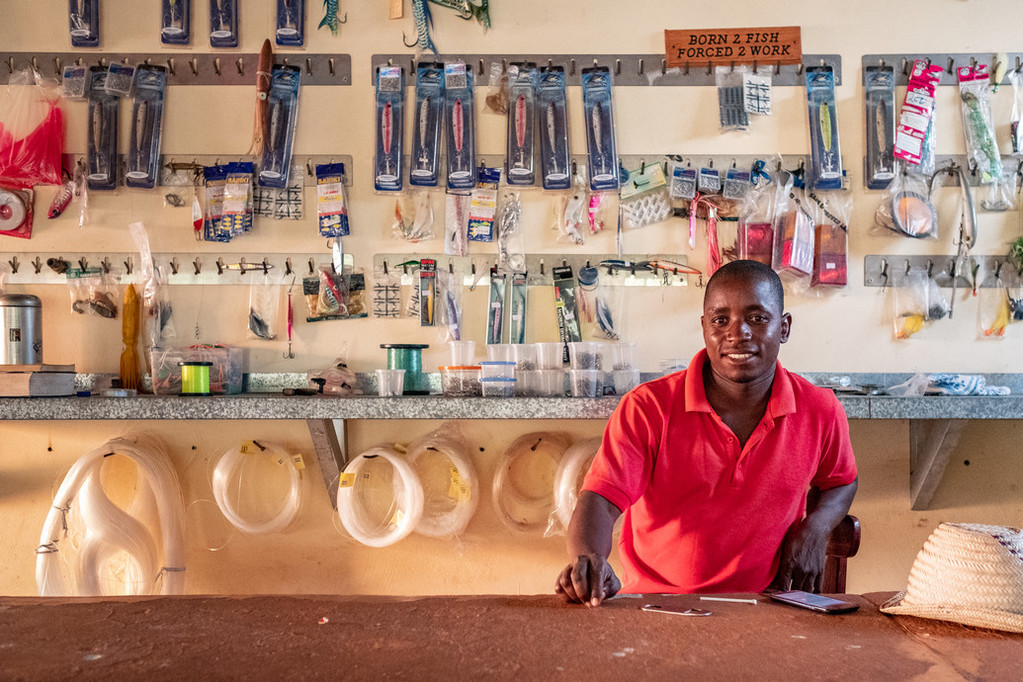
Tropical Storm Ana Update: Ana, the first tropical storm of 2022, hit Nampula province’s Angoche district on January 24. Moving inland, it dropped heavy rain in Nampula, Zambezia, and Tete provinces and then into Malawi. Rare’s staff are safe. While the winds has brought only minor damage to fisher communities where we work, there have been depressing news of flash floods and mud slides in large areas of central Mozambique covering more inland and hilly regions of Zambezia and Tete provinces.
Reducing Loss, Increasing Income: Rare in Mozambique is working with six coastal fishing communities to reduce post-harvest catch loss from spoilage and increase income from existing fisheries. Nearly 800 community members have been financially supported with $140,000 to start 11 community and fisheries enterprises, which provide alternative and additional income sources. These include business activities such as baking, hen farming, and selling ice, to enhance livelihoods and reduce fishing pressure.
Growing Blue in Mozambique: Rare, in partnership with the Mozambican Ministry of Sea, Inland Waters and Fisheries (MIMAIP) and the Blue Action Fund, co-hosted an event on “Community-based Managed Access and Management of Coastal Zones” during Mozambique’s 2nd Growing Blue International Conference. Partners including Mozambique’s National Fisheries Administration (ADNAP), Rare, WWF, WCS, Blue Action Fund, Oceans 5, and the World Bank discussed a provincial approach to sustainable and resilient small-scale fisheries in Mozambique, and drew from Fish Forever’s practices in countries and geographies with similar governance models. The event highlighted the core components of successful co-management approaches and the roles of communities, governments, and other stakeholders like small-scale fishers and celebrated partners’ achievements, like establishing Mozambique’s first local community-based managed access areas with associated no-take reserves. Participants explored how government partners, multilateral agencies like the FAO, civil society actors, local communities and funders could build on these initial success stories. They also explored how to jointly take a provincial approach to small-scale fisheries in Mozambique that accelerates local, integrated implementation of the Sustainable Development Goals, the UN Convention on Biodiversity’s post-2020 Global Biodiversity Framework and, ultimately, delivers on a sustainable Blue Economy. Watch the recording here: https://youtu.be/72HjXRcKB5A.
Pacific Islands: Palau and Federated States of Micronesia (FSM)
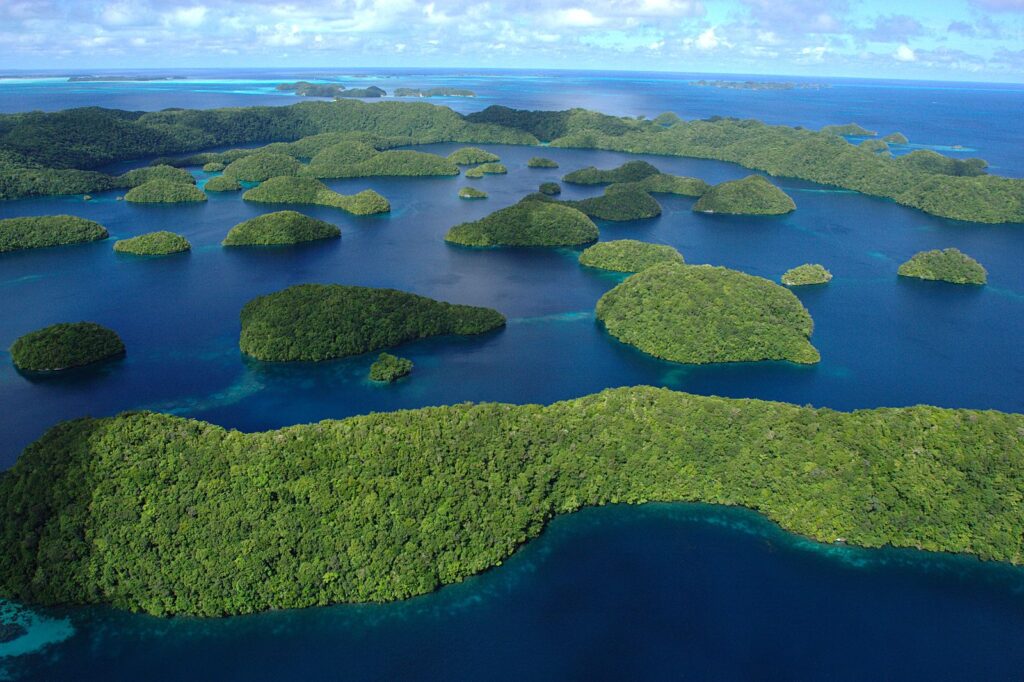
Rare in Palau appointed to the Melekeok Community’s Management Board for Protected Areas: Rare’s Kevin Mesebeluu has worked closely with the Melekeok community and the state’s Ngardok Nature Reserve Board to build the trust and momentum needed to start implementing a managed access with reserves approach and community-led fisheries management in the state. The Board manages the state’s terrestrial and marine protected areas. With only one marine reserve currently being protected, the community is now looking to Rare to develop the management plan and enabling legislation to create a new Managed Access Area to support the communities’ need for ecosystem provisioning services.
Brazil
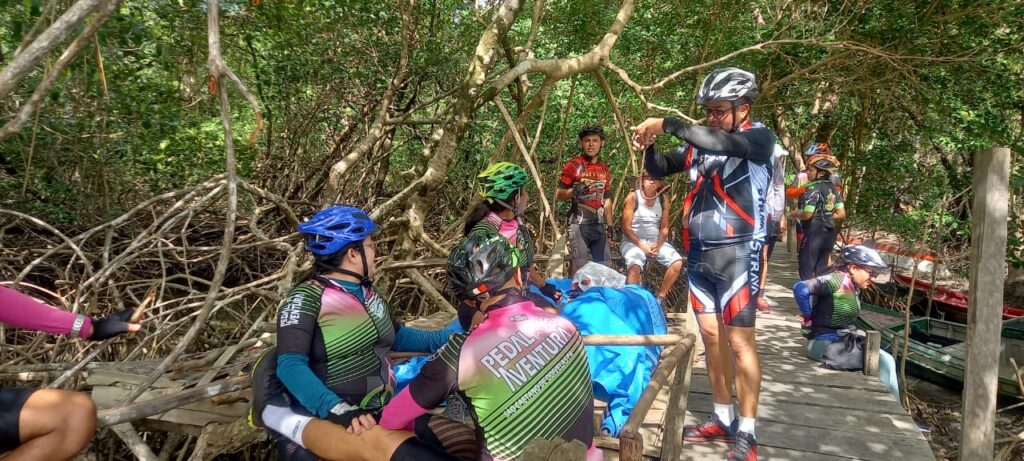
National Climate Forever Initiative: With support from the Casa Socioambiental Fund, 12 local fisheries associations across 12 marine Resex in Pará state are leading the national Climate Forever Initiative with Rare’s help. Actions that make up the initiative include climate vulnerability analyses with coastal communities, awareness-raising campaigns about the importance of mangroves, virtual classes and workshops for women and youth on climate change, and other local actions within the extractive reserves. An animated video (in Portuguese) illustrates the campaign, and materials can be found here.
New Management Committee of the State System on Climate Change: Rare Brazil joins other NGOs, indigenous peoples, quilombolas and traditional peoples, research institutions, and other organizations in the productive sector to participate in state debates on climate change and developing a lower carbon future. According to the head of Semas, Mauro O’de Almeida, appointments to the committee are taken very seriously. “Participatory management for the implementation of the PEMC (State Policy on Climate Change in Pará) is one of the pillars for the overcoming the challenges related to the environmental and climate agenda.” The PEMC, established in 2020, counts among its objectives the alliance of economic development and policies to reduce greenhouse gas emissions.
Indonesia
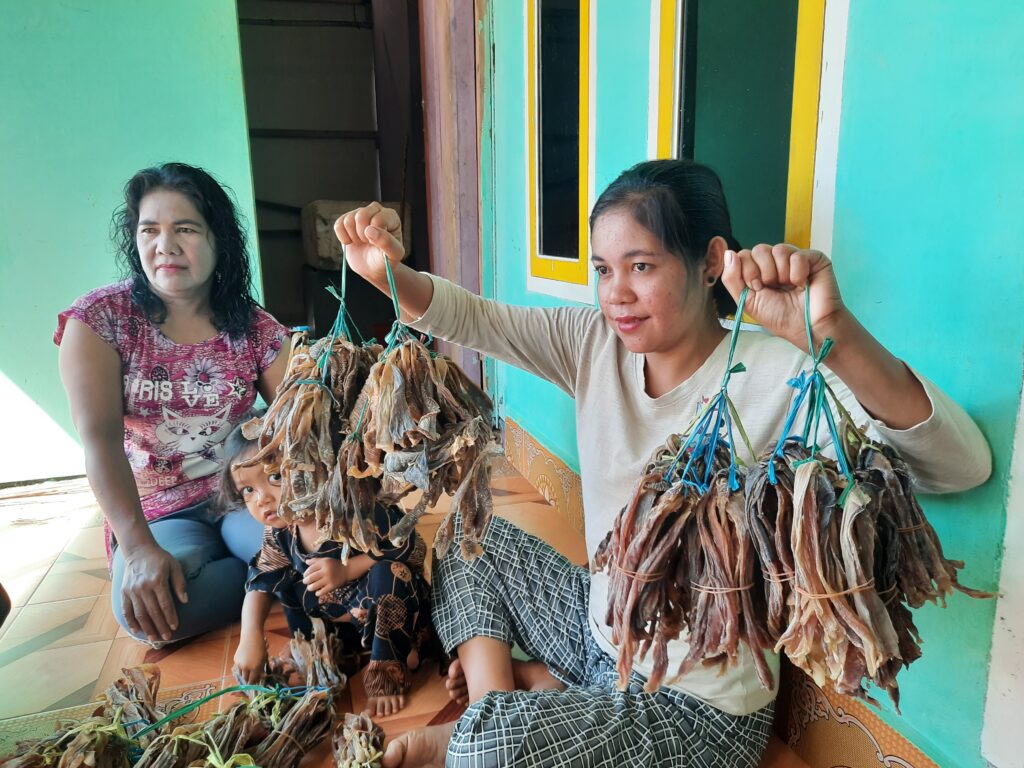
The Program’s First Bank Agent: Rare is in the process of facilitating training for fish buyers to become bank agent. With less than 20% of households across Indonesia’s communities having access to banks or general financial services, Rare is helping to bring banks to communities by training local bank agents.
Strengthening Fisheries Management Capacity in Southeast Sulawesi: Rare is in its third year of developing and establishing managed access areas with reserves (MA+R areas) in the province. As part of efforts to strengthen the province’s local, community-led fisheries management capacity, the team conducted a fourth training for 39 government staff from ten districts. For the existing 16 MA+R areas (covering over 250,000 hectares), Rare evaluated progress and identified priority adaptive management actions for government partners’ work plans in 2022. This is a critical phase of the program, given that Rare will conduct a complete evaluation of the program’s impacts and outcomes on ecosystem health and socioeconomic conditions in 2022.
Using Larval Connectivity to Identify New Managed Access Areas: The team has identified 12 new potential MA+R areas with government partners using Rare’s larval connectivity tools. These new areas are adjacent to over 100 fishing villages and cover approximately 100,000 hectares of marine waters. The final design of these new MA+R sites will conclude by 2022.
A New Draft Governor Fisheries Regulation in North Sulawesi: In North Sulawesi, the Ministry of Home Affairs has submitted a draft-Governor Regulation on Managed Access and Reserve development and establishment to the Legal Bureau of the North Sulawesi Province. This regulation will be the policy platform that will accelerate MA+R adoption throughout this province. The Rare team and government partners will work throughout 2022 to facilitate this. We foresee that the signing and enactment of this regulation will occur in early 2023, when the MA+R program in this province launches.
Helping Women Create More Sustainable and Valuable Fish Products: In Southeast Sulawesi’s Bombana District, more than 20 women fish processors produce and sell high-quality salted fish in local and district markets. But they aren’t necessarily using available tools and techniques to improve their products and businesses. Rare is collaborating with KIT Royal Tropical Institute with support from the Dutch Postcode Lottery to help. In a recent training on financial literacy, women were equipped with basic financial literacy skills and identified value creation strategies to improve their business, including 1) Working collaboratively to increase efficiency and increase bargaining power; 2) Improving fish drying technology so production can happen year-round; 3) Improving quality and standardizing production; 4) Adopting best practices in waste handling; and 5) Reaching more consumers using digital platforms.
Mesoamerican Reef (MAR)
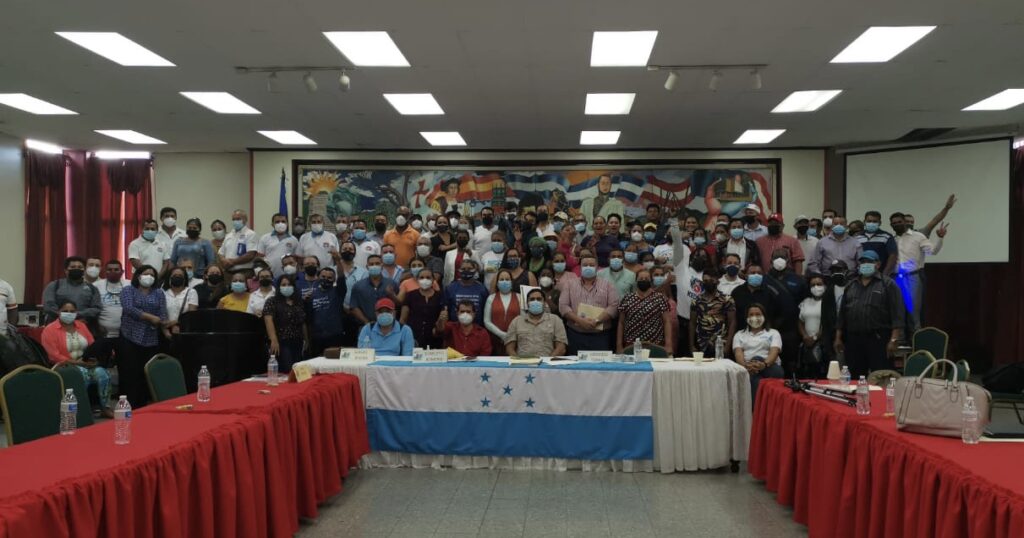
Partnering with local governments to unlock funding for small-scale fisheries: Our ongoing collaboration with local government partners has begun to yield exciting opportunities for long-term program sustainability. After 13 municipalities collectively committed to a total $195,000 investment in small-scale fisheries support and ocean protection, we’ve worked closely with mayors to put these commitments into action. As a result, six municipalities in Colón and one in Puerto Cortés collectively allocated over 678,000 lempiras (almost USD 30,000) to fisheries management and marine protection in their 2022 work plan and budget. This represents a pivotal pathway to ensuring a meaningful, lasting, and material commitment from local governments to invest in coastal communities, recover local fisheries, and maintain ecosystem health.
Harmonizing fisher registration data in Central America: With support from Oceans 5, Rare has partnered with OSPESCA, Central America’s regional fisheries management governing body, to leverage our successful experience in Honduras to advance the development of a harmonized fisheries registration system for the region and build the foundation to strengthen transparency. This effort is not only crucial for sustainable fisheries management at the regional level—but can also become a first-of-its-kind example of cross-border coordination and how to strengthen small-scale fisheries. Over the next year, we will collaborate closely with governments from all 8 OSPESCA countries to define a pathway to establish a harmonized system and a regional policy for enhanced transparency in access to fisheries data.
Elevating Fisher Voices at National Level: Honduras elected its first female president in November. The incoming government immediately launched an effort to gather critical priorities from traditionally marginalized and underrepresented sectors, like small-scale fisheries. This effort led to forming the National Small-Scale Fisheries and Aquaculture Table, which represents Honduras’ 17,000+ small-scale fishers. As part of this Table, Rare is elevating fishers’ voices in the north shore to consider their needs and ideas. Through a series of Rare-facilitated participatory sessions, the Table crafted a proposal that not only outlined the sector’s key priorities but spotlighted Rare’s approach: establishing managed access areas for small-scale fishers and a related network of fully protected reserves to repopulate fish stocks and revitalize marine ecosystems. In January, 84 fishing leaders traveled to the capital city to formally hand their proposal to incoming government representatives. This marks an essential change in Honduras governance: it signals a move towards more participatory decision-making and showcases the incoming government’s interest in prioritizing small-scale fisheries, something for which Rare and our partners have been advocating.
Philippines
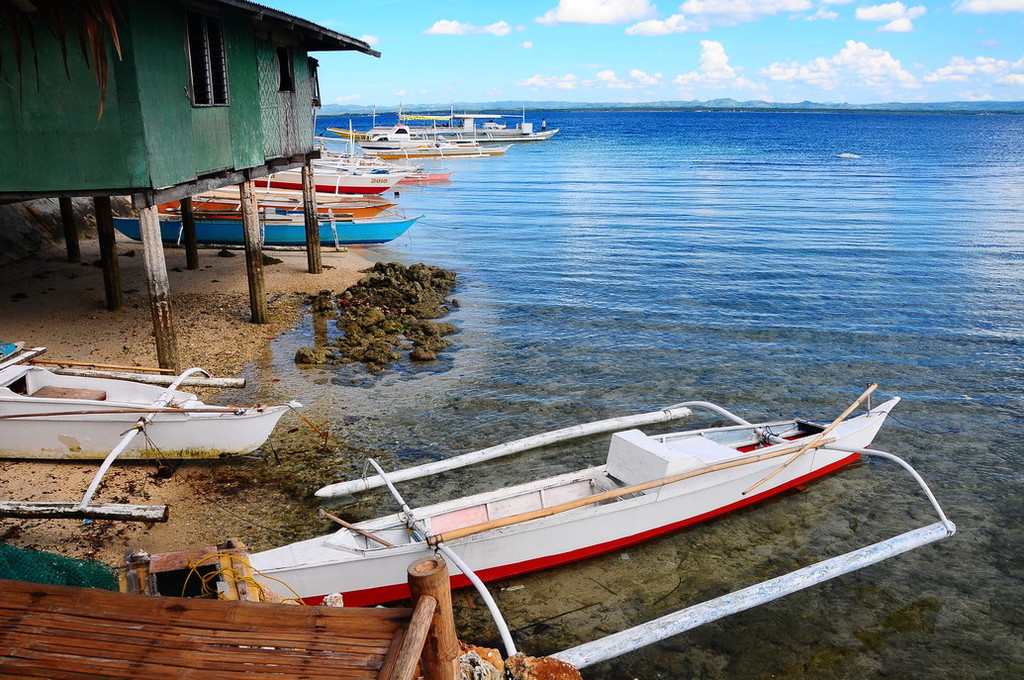
Typhoon Rai Update: Last December, Typhoon Rai—the strongest typhoon to hit the Philippines in 2021—devastated many Fish Forever communities in Siargao and Tañon Strait. Thousands of fishers lost their homes and boats. In the aftermath of the storm, Rare’s team has begun working with our partners to conduct assessments of the impacts of the disaster on marine habitats and livelihoods of fishing community members. Teams on the ground are also documenting whether climate resilience-building efforts like savings clubs, insurance, and marine protected areas have made a difference to the communities affected by the typhoon.
New Climate-specific Podcast and Video: In the first of a three-part podcast series, marine expert Dr. Miguel Fortes explains how coastal towns and cities can lower disaster risk for local populations by protecting their seagrass beds instead of dumping concrete and filling their shorelines with infrastructure. Listen to the podcast to learn more. Watch this short film from Rare to hear from coastal fishers and local governments on how they are proving that taking care of marine ecosystems is one of the most effective ways for coastal communities to adapt to the impact of climate change.
Investment Readiness Training to Increase Fishers’ Financial Resilience: Rare conducted a pilot training on investment readiness for local governments in the Camotes islands last September and October to enhance capacity in securing sustainable financing for coastal resource management. With the Department of Finance-Bureau of Local Government Finance, Rare Philippines facilitated the workshop for key personnel performing budget and local development planning tasks. Activities included analyses related to cost/benefits, funding, and gender and climate integration into fisheries management. This training is the result of a case study in the Camotes and Siargao islands that identified impacts to the islands’ small-scale fisheries value chain due to the coronavirus pandemic and identified solutions, including a diversified livelihood portfolio, alternative market distribution channels, insurance mechanisms, and support for the transition of small-scale fishers into the formal economy to alleviate their condition. Read the summary of the value chain study for more details.
FIELD-BUILDING RESEARCH
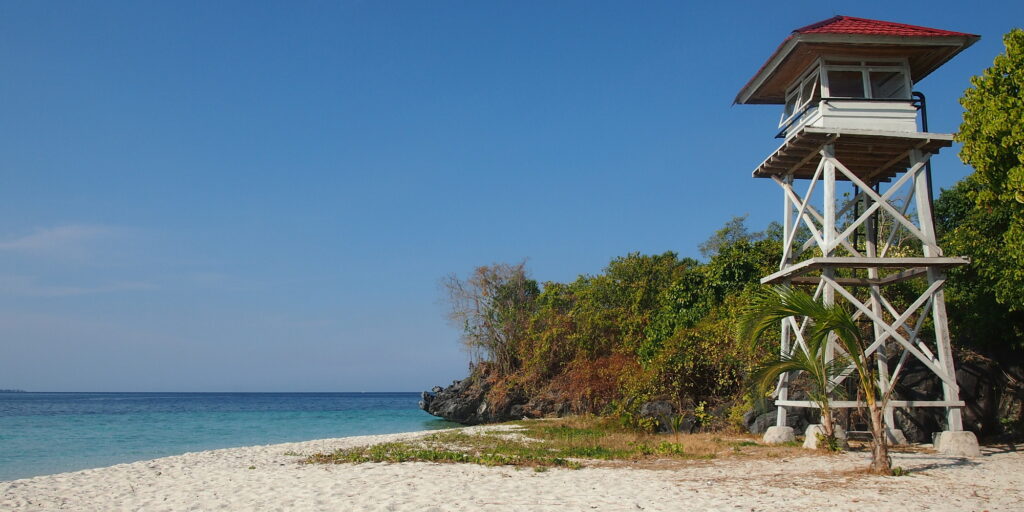
Marine conservation beyond MPAs: Towards the recognition of other effective area-based conservation measures (OECMs) in Indonesia (March 2022)
Estradivari et al. (2022) Marine conservation beyond MPAs: Towards the recognition of other effective area-based conservation measures (OECMs) in Indonesia. Marine Policy, vol. 137, no. 0308-597X, doi: 10.1016/j.marpol.2021.104939.
This study features Rare in Indonesia.
In this study, Estradivari et al. assert that while marine protected areas (MPAs) are the most recognized and widespread marine conservation tools globally, they alone are insufficient to address the rising threats of climate change and conserve biodiversity. Other effective area-based conservation measures (OECMs), promoted under Target 3 of the Post-2020 Global Biodiversity Framework, may complement MPAs in providing long-term conservation benefits. In this study, the authors provide an overview of the potential OECMs in Indonesia, including how they compare to the Convention on Biological diversity’s OECM criteria. In particular, Rare Indonesia’s Managed Access with Reserves (MA+R) concept was reported by Indonesia as a contribution to the country’s marine conservation achievements and determined by the authors as having the potential to meet OECM criteria agreed by the CBD. Ultimately, while many potential OECMs have been named in several national policies, there is still no established guidance or protocol for recognizing and reporting sites as OECMs in Indonesia. The authors concluded by proposing well-articulated guidance on advancing OECM recognition in Indonesia.
Local Practices and Production Confer Resilience to Rural Pacific Food Systems During the COVID-19 Pandemic (March 2022)
Ferguson, Caroline E. et al. (2022) Local Practices and Production Confer Resilience to Rural Pacific Food Systems During the COVID-19 Pandemic. Marine Policy, vol. 137, no. 0308-597X, doi: 10.1016/j.marpol.2022.104954.
The authors of this study conducted over 600 interviews across nearly 200 coastal villages in 7 different Pacific countries to assess whether increased connectivity decreases or improves resilience in food systems. The study was particularly interested in how the food systems faired and adapted at the community level to the global shock in food security associated with the COVID-19 pandemic. Through analyzing the interviews, Ferguson et al. found that local food production and food sharing were positively correlated with resilience. Additionally, communities that were heavily reliant on imported food were nearly twice as likely to claim food insecurity than those that were not very reliant. The authors assert that sustainable local food production should be supported and strengthened. However, their overall findings suggest that while locally produced food systems prove to be more resilient, imported foods could complement these systems and mitigate food security if measures were in place to support them after disasters and future unanticipated shocks.
Small-Scale Fisheries in the Blue Economy: Review of scholarly papers and multilateral documents (February 2022)
Ayilu Raymond K., Fabinyi Michael, Barclay Kate (2022) Small-Scale Fisheries in the Blue Economy: Review of scholarly papers and multilateral documents. Ocean & Coastal Management, vol. 216, no. 0964-5691, doi: 10.1016/j.ocecoaman.2021.105982.
The ever-evolving threat of climate change has galvanized many to advocate for more effective, more robust ocean governance, and thus, the blue economy. While there is no single understanding of how the blue economy directly advances long-term sustainability goals, the novel concept still drives global ocean governance debate and objectives, particularly around balancing environmental sustainability with economic value. This study deployed a scoping analysis of existing scientific literature and policy documents to understand the role of small-scale fisheries in the blue economy. The authors found that although the literature highlights the social benefits and facets of small-scale fishing that make the sector more appropriate for achieving some of the declared goals of the blue economy, such as nutritional and livelihood importance, many policies suit industrial fisheries and aquaculture over small-scale fisheries. Seeing as the blue economy is still a work in progress, the scientific community should guide well-articulated policy goals for small-scale fisheries.
Fish Forever: A solution to coastal overfishing – delivered by empowering communities through clear rights, strong governance, local leadership, and participatory management – that protects essential fish habitat and regulates fishing activities to replenish and sustain coastal fisheries.
Goal: To deliver replicable and scalable community rights-based management across ten countries, using a global network of 500 local leaders to secure livelihoods for one million fishers, alleviate poverty, ensure food supply, and protect coastal ecosystems from chronic threats.
Fish Forever Countries: Philippines, Indonesia, Mozambique, Brazil, Honduras, Guatemala, and the Pacific Island countries of Palau and the Federated States of Micronesia.
Fish Forever is possible thanks to the support of many, including the following current donors:
